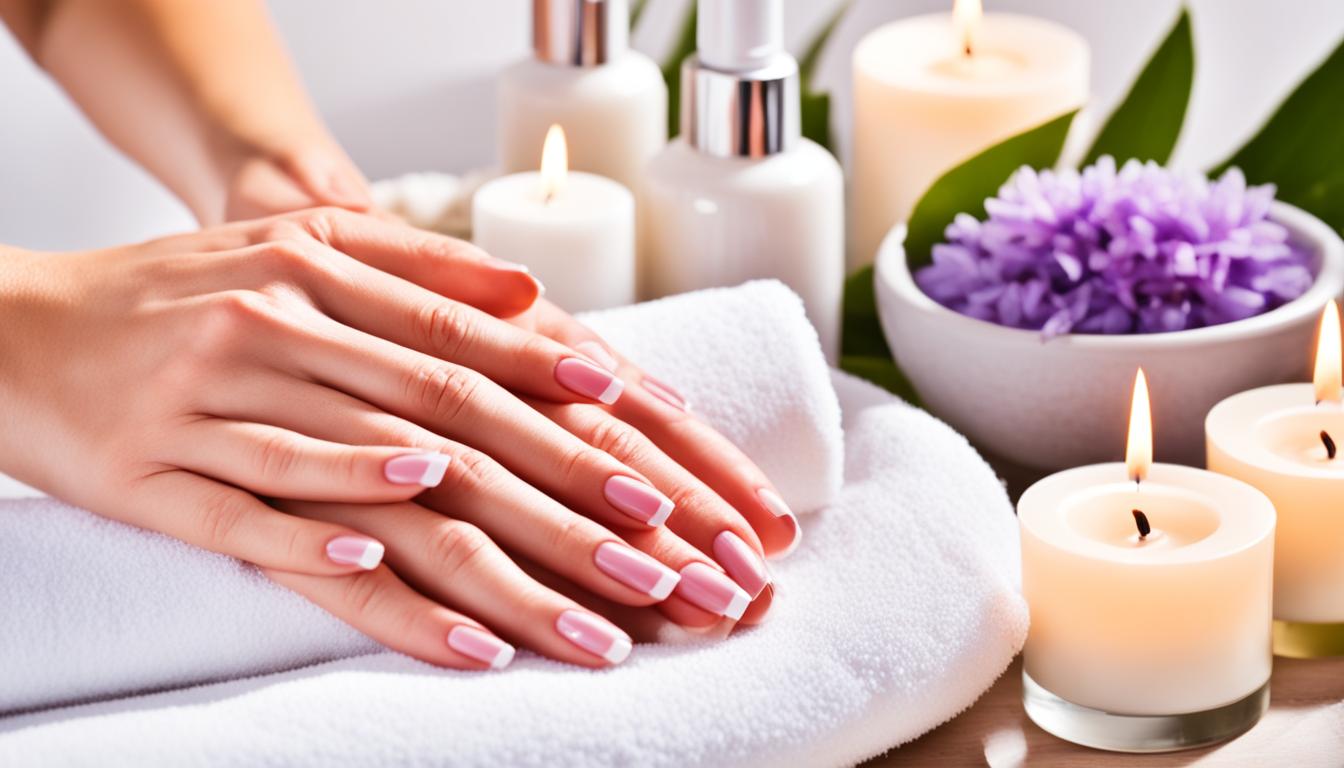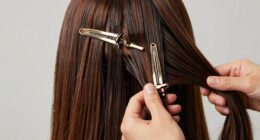Decoding beauty product labels is essential for understanding what you're applying to your skin. Terms like "natural" can be misleading, as these products can still contain synthetic ingredients. Look for certifications like USDA Organic for more clarity on ingredient quality. Safety labels like "phthalate-free" and "paraben-free" indicate a focus on health-conscious choices. Be aware that "fragrance-free" doesn't always mean scent-free; sometimes, it just hides other chemicals. Familiarizing yourself with these terms will empower you to choose products wisely. There's plenty more to uncover about what these labels mean for your beauty routine.
Key Takeaways
- "Natural" products can contain up to 30% synthetic ingredients, so always check ingredient lists for authenticity.
- Certifications like USDA Organic or Ecocert ensure high standards and ethical sourcing in beauty products.
- Fragrance-free products lack added fragrances, while unscented items may still have masking chemicals; be cautious if sensitive to scents.
- Labels like "phthalate-free" and "paraben-free" indicate avoidance of harmful chemicals, promoting safer skincare choices.
- Understanding expiration dates and PAO symbols is vital for ensuring skincare product safety and effectiveness.
Understanding Natural Products
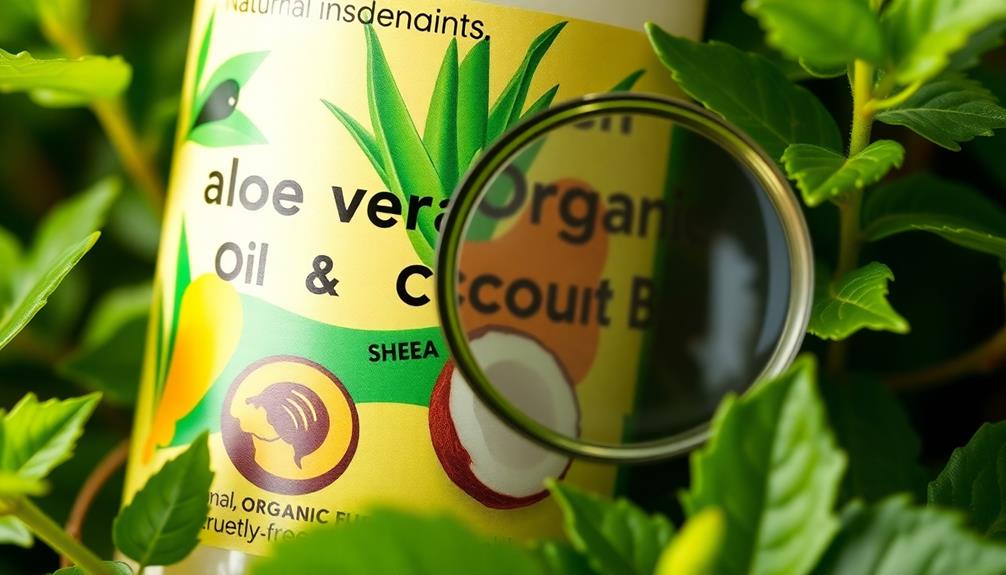
When you pick up a beauty product labeled "natural," you might assume it's free from synthetic ingredients, but that's not always the case. In fact, products labeled as natural can contain up to 30% synthetic ingredients. To truly qualify as 100% natural, a product must contain no synthetic ingredients and often carries certifications from organizations like the Natural Product Association (NPA).
It's also crucial to maintain a healthy glow for your skin, which often involves using effective hydration techniques.
It's essential to understand that clean skincare is a different category. While clean products often exclude harmful or irritating components, they can still include both synthetic and natural ingredients. Transparency in ingredient sourcing is key; you deserve to know where and how the ingredients are obtained.
Moreover, there's no government regulation for the term "natural" in cosmetics, which can lead to discrepancies in product labels and misinterpretations. If you're looking for a cruelty-free product, also check for certifications that affirm its ethical sourcing.
Always scrutinize ingredient lists to confirm you're choosing genuine natural products, as understanding these labels empowers you to make informed decisions for your skin. Remember, knowledge is your best tool when steering through the beauty aisle!
Safety Labels Explained
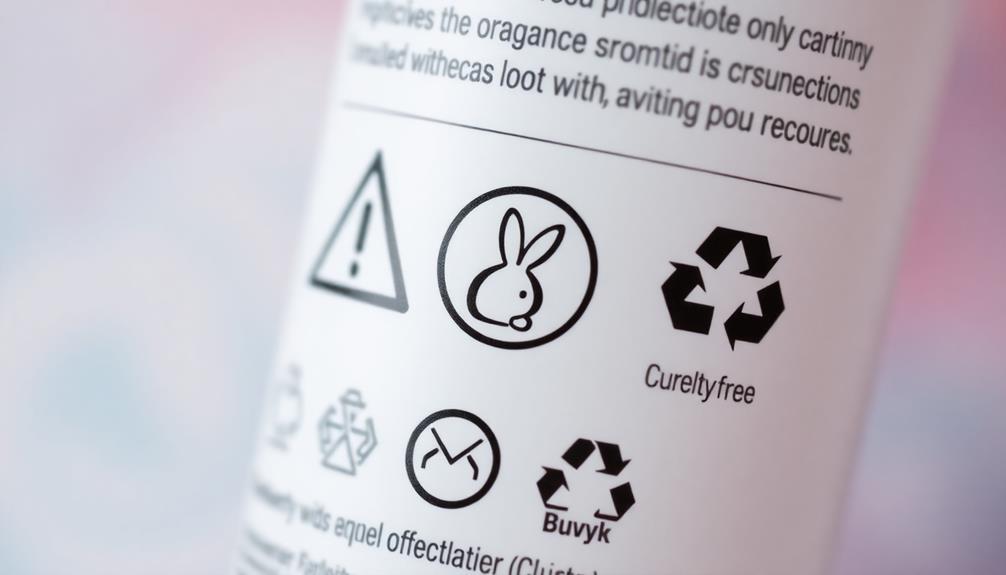
Understanding safety labels on beauty products is essential for making informed choices about what goes on your skin. When browsing cosmetics, pay close attention to the labels; they reveal important information about the product's safety and formulation.
Choosing products that are safe for children can also be an important consideration for parents supports foundational learning in science and math. Here's what you should look for:
- Phthalate-Free: Avoids harmful chemicals linked to health risks.
- Hypoallergenic: Minimizes the risk of allergic reactions, though not guaranteed.
- Non-Comedogenic: Helps prevent clogged pores, reducing acne breakouts.
Many consumers seek products that are labeled as natural or feature a certified cruelty-free logo, indicating a commitment to ethical practices.
Products that are paraben-free also enhance safety by excluding preservatives that might disrupt hormones. If you have sensitive skin, hypoallergenic options may be more suitable, but remember that they're not foolproof.
Non-comedogenic formulas are particularly beneficial for oily or acne-prone skin types, ensuring you won't exacerbate breakouts.
Decoding Fragrance Terminology
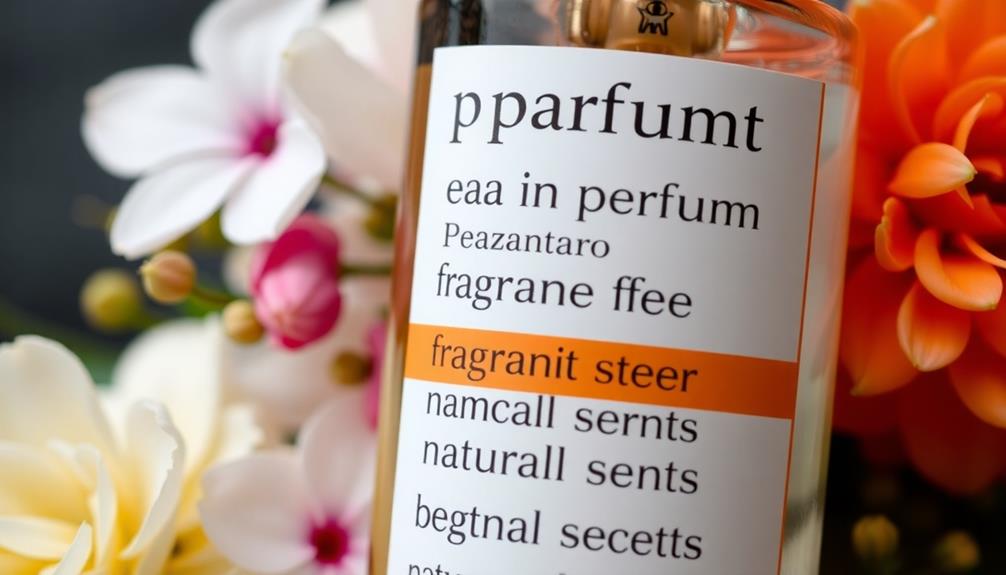
Steering through the world of beauty products involves more than just checking safety labels; fragrance terminology plays a significant role in your choices too. When you see the term parfum, it refers to fragrant ingredients that can include both synthetic and natural components. The FDA doesn't require individual disclosure of these ingredients, which can make it tricky to know what you're applying.
Some consumers opt for essential oils for cleaning due to their natural antibacterial and antifungal properties, finding them a better alternative to synthetic fragrances.
If you prefer natural fragrances, look for those derived from raw materials like essential oils, though keep in mind they mightn't last as long as synthetic alternatives. On the other hand, fragrance-free products have no added fragrances, while unscented items may still contain masking chemicals.
For those with sensitivities, understanding fragrance labels is vital, as synthetic fragrances can lead to irritation, whereas natural options might feel safer. Always check the ingredient list to gauge potential allergens and irritants.
Certifications and Standards

Maneuvering the landscape of beauty product certifications and standards can feel overwhelming, but it's vital for making informed choices. Understanding these labels helps you guarantee the products you choose align with your values and needs.
Just as with beauty products, awareness of energy-efficient systems like geothermal heat pumps can lead to better environmental choices and long-term savings, as they considerably reduce greenhouse gas emissions by utilizing renewable resources like the Earth's natural heat (lower energy consumption).
When you see the Certified Organic or USDA Organic seal, you know the product contains at least 95% organic ingredients and meets strict agricultural standards. Similarly, the Ecocert Certification guarantees adherence to sustainable practices.
Look for the Leaping Bunny logo if you want to buy cruelty-free cosmetic products, confirming no animal testing was used during production. The Vegan Awareness Foundation logo confirms the absence of animal products or by-products, which is essential for ethical consumers.
Here are some benefits of knowing these certifications:
- You support brands committed to ethical practices.
- You protect your skin with natural cosmetics that prioritize health.
- You enjoy thorough sun protection with products labeled as broad-spectrum SPF.
Ingredient Transparency Importance
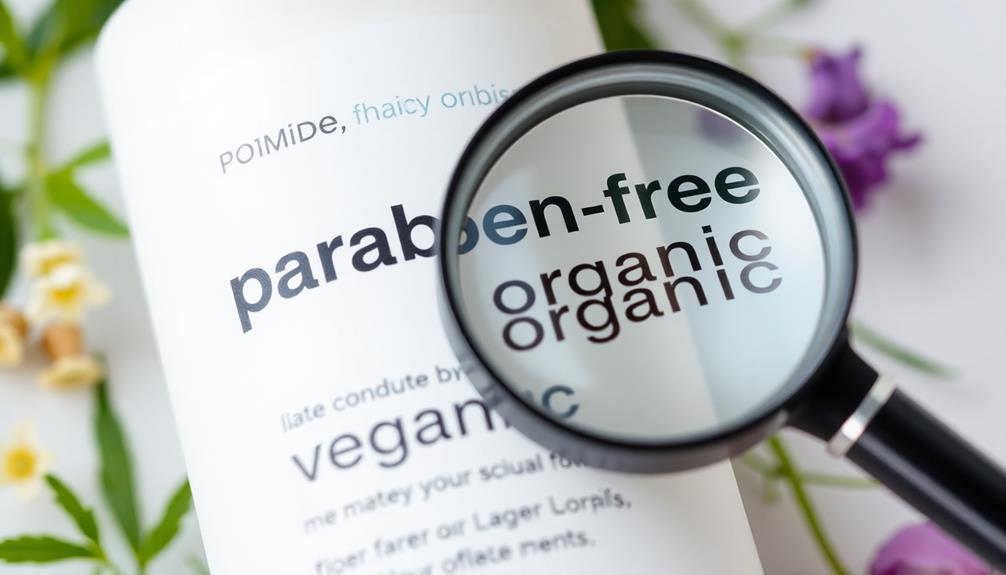
Understanding ingredient labels is essential for making choices that align with your health and ethical beliefs.
Natural alternatives, such as herbal extracts, have gained popularity for their effectiveness and safety in anti-aging.
When brands are transparent about their sourcing practices, you can trust that the products you use are safe and responsibly made.
As a consumer, your demand for clarity drives the beauty industry towards higher standards.
Understanding Ingredient Labels
Steering through beauty product labels can feel overwhelming, but ingredient transparency is essential for making informed choices. Understanding ingredient labels allows you to know exactly what's going onto your skin and hair.
Legally required clear ingredient lists help you identify potential allergens or harmful substances lurking in your favorite cosmetics products. Additionally, just as essential oils can influence emotional well-being, so too can the ingredients in your beauty products affect your skin and overall health.
Here are three reasons why ingredient transparency matters:
- Avoid Harsh Chemicals: Stay clear of sulfates, parabens, and phthalates, which are linked to health risks.
- Know What You're Using: Recognize the difference between natural fragrances and synthetic ones.
- Build Trust: Foster a relationship with brands that prioritize ethical and sustainable practices.
While terms like "natural" and "clean" aren't regulated, you can make better choices by scrutinizing product labels.
Look for organic products and familiar ingredients in your skin care routine. By prioritizing ingredient transparency, you empower yourself to avoid harmful substances and select beauty products that align with your values and needs.
Ethical Sourcing Practices
Often, consumers overlook the importance of ethical sourcing practices when choosing beauty products, yet these practices greatly impact both the environment and society. Ingredient transparency is essential; it allows you to understand where each component in your products comes from and how it's sourced. When you see symbols like USDA Organic or Ecocert on labels, you know those products meet high standards for ethical sourcing and quality.
Additionally, just as in the tea industry where sustainability in tea production is gaining importance, beauty brands are also recognizing the need to adopt sustainable practices.
Brands that prioritize ethical sourcing often provide a detailed ingredients list that discloses their supply chains, letting you trace the origins of the ingredients. This transparency fosters trust and loyalty, as you can confidently select Vegan products that avoid animal testing while supporting fair labor practices.
As consumer awareness grows, many companies are adopting clearer labeling practices, making it easier to identify products that align with your values. By choosing Certified products with ethical sourcing, you're not just caring for your skin but also supporting sustainability and social responsibility.
Expiration and Usage Guidelines
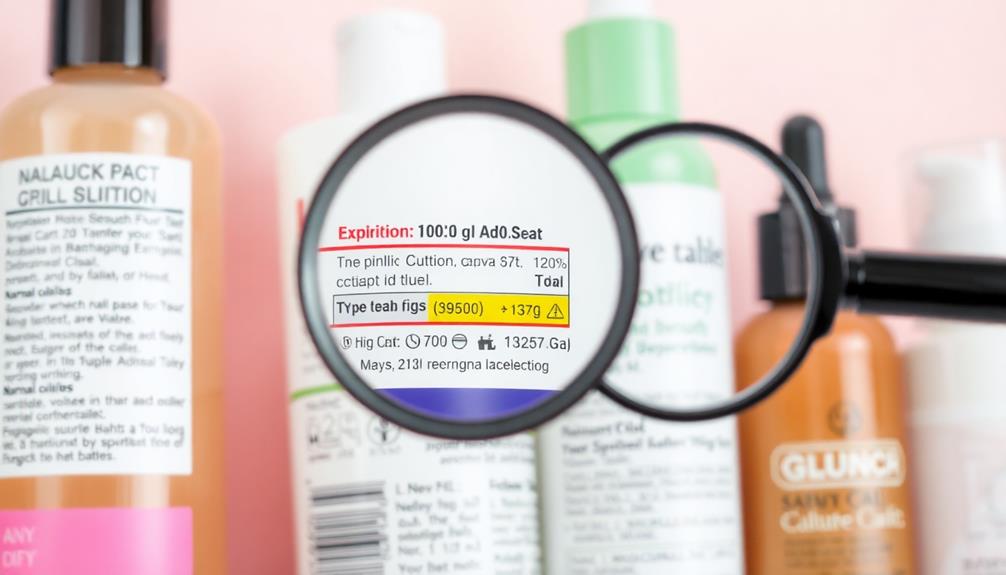
Expiration and usage guidelines are vital for ensuring that your beauty products remain safe and effective. Understanding expiration dates and the PAO symbol can help you avoid skin issues and maximize product efficacy.
In the EU, products must include a "Best Before End" (BBE) date or a PAO symbol, which indicates how long the product is usable after opening—typically ranging from 6 to 24 months. Just as the role of color accuracy in home cinema projectors emphasizes the importance of precision for peak performance, knowing the expiration of your products is essential for maintaining their effectiveness.
Here's what to keep in mind:
- Using expired cosmetics can lead to skin irritation or infections.
- Ingredients have been tested for safety and effectiveness only until the expiration date.
- Regular inspection of your products helps maintain your skin's health.
Unopened cosmetics generally boast a longer shelf life, but once opened, their effectiveness can decline faster due to ingredient degradation.
Always check that the product is labeled with a BBE date or PAO symbol, and don't hesitate to toss anything that's past its prime. Remember, your skin deserves the best care, so stay vigilant about expiration dates and proper usage to enjoy the full benefits of your favorite products.
Frequently Asked Questions
How to Read Skincare Product Labels?
To read skincare product labels effectively, you'll want to check for certifications, understand terms like "fragrance-free" versus "unscented," and look for transparency in ingredients. Pay attention to expiration dates and safety labels for better choices.
What Do the Numbers on Beauty Products Mean?
Numbers on beauty products guide you—indicating weight, effectiveness, or expiration. They help you make informed choices, ensuring your beauty routine stays safe, sustainable, and satisfying. So, always check those digits before diving in!
What Does 12M Mean on Beauty Products?
When you see "12M" on beauty products, it means you should use them within 12 months after opening. Using them beyond this timeframe might reduce effectiveness and could cause skin irritation or reactions.
How Can You Tell When a Beauty Product Was Made?
To determine when a beauty product was made, check for a manufacturing date or batch code on the packaging. You can often decode batch codes online to find the production date directly from the manufacturer.
Conclusion
Steering through beauty product labels can feel like deciphering a foreign language, but you've got the tools to reveal their secrets. By understanding terms and certifications, you can confidently choose products that align with your values and needs. Remember, knowledge is your shield against misleading marketing. As you embrace ingredient transparency and safety standards, you'll not only enhance your beauty routine but also empower yourself to make choices that reflect your true self. Keep shining!





